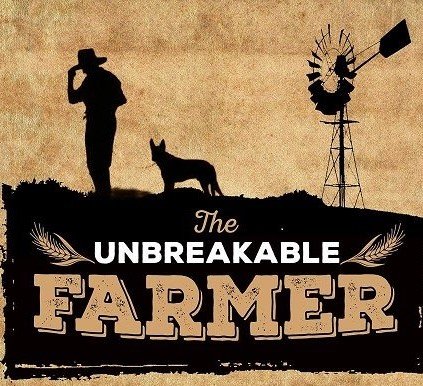Redefining Rural Men’s Vulnerability: Cultivating Strength Through Openness
Cultivating Vulnerability
Vulnerability is often misunderstood. It’s not about weakness or lacking resilience; it’s about having the courage to be real. Yet, the old-school idea of masculinity tells men to bottle up their struggles, to keep emotions hidden out of fear it will make them seem less "Manly." But the truth is, real strength comes from honesty from admitting when we’re struggling and being open enough to seek support.
Breaking the Rural Stereotype
In rural Australia, there’s an expectation that men should be tough, independent, and unwavering in the face of hardship. Whether it’s dealing with financial pressures, battling through droughts, bushfires, floods or handling personal struggles, many rural blokes have been raised to "just get on with it." But this mindset often leads to shame, guilt, a sense of failure, isolation, stress, and mental health challenges that go unnoticed and untreated.
What if we flipped the script? What if, instead of seeing vulnerability as a weakness, we saw it as a powerful tool for connection? What if sharing our struggles became a normal part of life, rather than something to be ashamed of?
The Power of Connection
When men open up, it deepens relationships. It allows fathers and sons, brothers, and mates to connect on a level beyond casual banter. Rural communities thrive on connection it’s what keeps them strong. By encouraging men to speak about their challenges, we reinforce these community bonds and create a culture where no one feels like they have to go it alone.
Being vulnerable doesn’t mean spilling your guts to everyone or seeking pity. It simply means being honest about what’s going on and being willing to ask for help when it’s needed. No one is meant to carry life’s burdens alone.
Understanding How Men Communicate
The idea that "men don’t talk" isn’t true. The problem is, we often expect them to talk in a way that doesn’t come naturally. A lot of men open up through action whether it’s working alongside someone, sharing a yarn over a beer, or having a chat while fixing a fence.
Rather than forcing conversations in an unnatural way, we need to create spaces where men feel comfortable. When we meet them where they are, we open up opportunities for meaningful discussions about mental health and wellbeing.
Leading by Example
Change doesn’t happen overnight, but it starts with small actions. It’s a farmer checking in on his neighbour, a dad having an honest conversation with his son, or a community leader speaking openly about mental health. Every step, no matter how small, helps to normalise vulnerability and shift the outdated view of masculinity.
We need to redefine what it means to be a strong rural man. Strength isn’t just about physical endurance or resilience in the face of hardship it’s also about being emotionally aware and connected to those around us. A strong man is one who can lean on his mates and offer support in return.
A Call to Action
If we want to change the way rural men view vulnerability, we have to challenge the old beliefs that tell them to keep quiet and "tough it out." We need a new narrative one that says courage includes emotional honesty, and that seeking support is a sign of wisdom, not weakness.
By embracing vulnerability, we build stronger men, stronger families, and stronger communities. It’s time to break the cycle. It’s time to redefine rural masculinity.
Let’s start the conversation.
Connect with me to subscribe to my newsletter or podcast or check out my Mens Program













